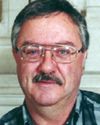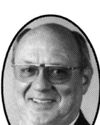Mr. Speaker, I thank the hon. member for Verdun-Saint-Paul for his applause at the start of my remarks, but it might be wiser to wait and see what I have to say.
I think what my colleague meant is that, for the time being, he takes to heart the interests of both Canada and Quebec. That is my interpretation.
Mr. Speaker, I am pleased to take part in this debate on Bill C-18 and more particularly on the amendment moved by the Reform Party. I have to say I do not agree with the amendment, because it does not give us enough time to examine fully the impact of those boundary readjustments.
I remember that in 1985-86 we went through the same exercise. We had to redefine a riding on Montreal's south shore, a process which took quite a bit of time because it was suggested then to cut out from Longueuil the area which was expanding. Indeed, a proposal had been made to remove from my riding the whole industrial zone where lots were available for development purposes. I was going to find myself trying to promote the economy of my region with almost no opportunities left to do so. Primarily for that reason, I asked the mayor of Longueuil for his opinion on this issue, and I also consulted with representatives of the Liberal Party, who were opponents but also colleagues, and we agreed that it would not be a good idea to divide Longueuil in that fashion.
Consequently, we had to redefine five or six ridings. The decision not to reduce the number of constituents in the eastern part of the riding but rather to the south meant that we had to redraw the ridings of Saint-Hubert, La Prairie, Saint-Jean, Chambly and Verchères. You can imagine how long this exercise took. This is why I support the bill proposed by the Chief Electoral Officer in the document on new electoral boundaries.
There is another reason why I believe more time is needed, particularly in the case of Longueuil and the vast region on Montreal's south shore. The Montérégie is the region which has been experiencing the strongest growth in Quebec over the last fifteen years. It is in that region that the largest number of jobs were created. I believe it is also where the population has increased the most. In fact, it is for these reasons that a new riding is proposed on Montreal's south shore, as well as on the north shore, in Laval.
I should point out too that many studies are currently underway, including the Pichette report, commissioned by the Quebec government, which also proposes the creation of new regions on the south shore. The south shore would no longer be managed by the Société montérégienne de développement or SMD, but would be divided into two sub-regions which would be managed by the greater Montreal area. We would have Montreal, two regions on the south shore, Laval, the West Island, as well as the east end of Montreal which could form a large community for the purposes of economic development. Obviously, this will result in major changes on Montreal's south shore.
As I just mentioned, the south shore is currently managed by the Montérégie. I personally sit on the Partners for Employment committee-along with members of Quebec's national assembly, mayors, reeves, representatives from regional county municipalities, as well as senior federal civil servants-and I realize that the Montérégie region is not necessarily easy to manage. There are many interests which are not common.
The people in Granby, Bromont and Saint-Jean do not have a lot in common with the residents of Longueuil, Boucherville and Saint-Lambert. That is why we have undertaken an in-depth review of how to better manage the Greater South Shore of Montreal in order to be more efficient at all levels, whether it be economic development, social affairs, cultural affairs, or tourism. So, we are currently conducting this in-depth review to make sure our region can prosper in the areas I just mentioned.
So, the fact that we have two years and commissions to help us examine in detail how we can divide the ridings on the South Shore is very useful, and I think we really need all of these things.
Of course, for the last fifteen years, I have been very involved on the South Shore of Montreal. I do not need to be reminded, but I feel I must point out that, in 1983-84, during my term as chairman of the Chamber of Commerce of the Greater South Shore of Montreal, we addressed this issue. As you can see, it is a lengthy process.
In those days, we talked a lot about decentralization and accountability. If we want to get to know each other better, we need to feel a sense of belonging to be able to take charge of our lives and meet our responsibilities.
I for one have always believed that decentralization and accountability will help us pull through and take charge.
Unfortunately, the Liberal government tends to centralize everything and to manage from the top, which I think hinders progress, and I cannot agree with them on this. We absolutely need to ensure that the people at the grass root level, those who know their needs, who know what they have, who know their resources and their market, can take charge.
How can we go about it? By giving this responsibility to smaller areas. And it is in this spirit that I have been working with the Partners for Employment committee on the South Shore for a long time now.
Here is another suggestion. If we want to make people aware of their responsibilities, we will also have to ensure that municipalities have the resources they need to prosper and to help businesses to prosper.
Again, who is closer to small and medium-sized businesses and thus better able to help them create jobs? People who know well the needs of these small and medium-sized businesses must be the ones to give them the support they need to prosper and create jobs.
That does not seem to be important to the Reform Party. On the contrary, it appears to me that a sense of belonging to a region must absolutely be achieved if we want to create more jobs and work together to improve everybody's lot. It is in that spirit that we, in Quebec, have been working for a long time to delimit regions that are so homogeneous that people living in them can recognize and understand each other, grow and prosper together.
Thus, Mr. Speaker, I will vote against this amendment by the Reform Party and I hope that it will be defeated-and I think it will, since the government is against it-so that we can all prosper, create jobs and do better.






